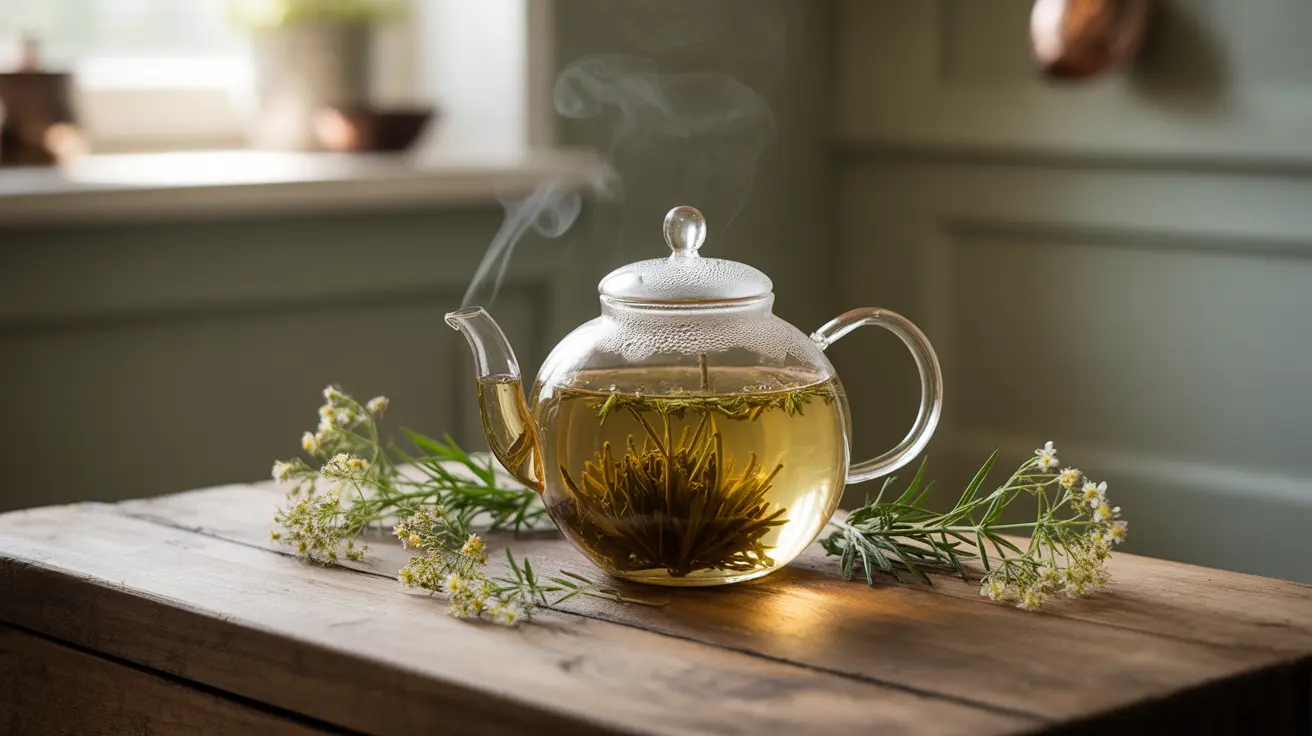Wormwood tea, derived from the Artemisia absinthium plant, has been used for centuries in traditional medicine for its potential therapeutic properties. This bitter herb, known for its distinctive flavor and medicinal qualities, continues to intrigue both herbalists and health enthusiasts seeking natural remedies for various ailments.
While wormwood's historical significance is well-documented, it's essential to understand both its benefits and potential risks before incorporating this powerful herb into your wellness routine.
Understanding Wormwood Tea and Its Components
Wormwood tea is brewed from the leaves and flowers of the Artemisia absinthium plant, which contains several active compounds including thujone, absinthin, and various beneficial essential oils. These compounds contribute to the tea's bitter taste and potential therapeutic effects.
Traditional Uses and Potential Benefits
Throughout history, wormwood tea has been valued for its various medicinal properties. Traditional herbalists have long recommended it for:
- Digestive support
- Parasitic infections
- Appetite stimulation
- Anti-inflammatory purposes
- Immune system support
Modern research continues to investigate these traditional applications, with some studies showing promising results in certain areas, particularly regarding digestive health and antimicrobial properties.
Proper Preparation Methods
To maximize the benefits while minimizing potential risks, proper preparation of wormwood tea is crucial:
- Use 1-2 grams of dried wormwood per cup of hot water
- Steep for 10-15 minutes
- Strain thoroughly before consuming
- Start with small amounts to test tolerance
Safety Considerations and Contraindications
Despite its potential benefits, wormwood tea requires careful consideration regarding safety. The presence of thujone, a potentially toxic compound, means that consumption should be monitored and limited.
Groups Who Should Avoid Wormwood Tea
The following individuals should not consume wormwood tea:
- Pregnant women
- Breastfeeding mothers
- People with kidney disorders
- Those with liver conditions
- Individuals taking certain medications
- People with seizure disorders
Recommended Usage Guidelines
For those who can safely consume wormwood tea, following proper usage guidelines is essential:
- Limit consumption to 1-2 cups daily
- Do not use continuously for more than 4 weeks
- Take a 2-week break between usage periods
- Monitor for any adverse reactions
Frequently Asked Questions
What are the health benefits and traditional uses of wormwood tea?
Wormwood tea traditionally offers benefits for digestive health, parasitic infections, and immune system support. It contains compounds with anti-inflammatory and antimicrobial properties, though these effects should be validated by your healthcare provider.
Is wormwood tea safe to drink during pregnancy or breastfeeding?
No, wormwood tea is not safe during pregnancy or breastfeeding. The active compounds, particularly thujone, can be harmful to fetal development and may pass through breast milk. Pregnant and nursing women should avoid this herb completely.
How does wormwood tea help with digestive problems and intestinal parasites?
Wormwood tea's bitter compounds stimulate digestive secretions and may help with various digestive issues. Its natural antimicrobial properties may help combat intestinal parasites, though clinical supervision is recommended for treating specific conditions.
What are the possible side effects and risks of drinking wormwood tea?
Possible side effects include nausea, dizziness, headaches, and allergic reactions. In high doses or with prolonged use, wormwood tea may cause nervous system problems, liver damage, or kidney issues due to its thujone content.
How much wormwood tea is safe to consume and for how long?
Safe consumption typically involves 1-2 cups daily for no more than 4 weeks at a time. After a 4-week period, take a 2-week break before resuming use. Always start with small amounts to assess tolerance and consult a healthcare provider before regular use.




